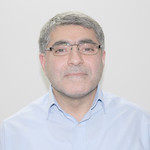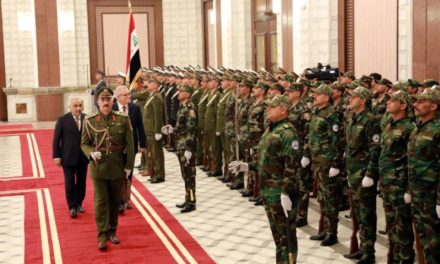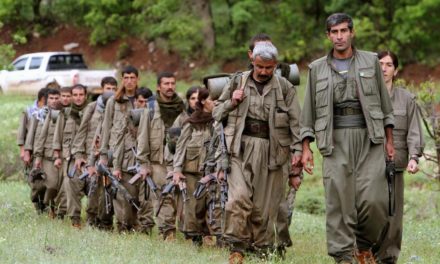(Photo: Reuters)
By taking an in-depth look at the recent political and social upheavals in Iraq, we notice that successive governments since 2003 have shown little or no interest in reforming the political landscape. This is despite the recent initiatives which have included amending the constitution and the promise to hold early elections on the basis of “one man, one vote” and multiple constituencies, which take into account population densities, as decreed by the Iraqi constitution.
The rapid escalation in the demands for real change makes the prospect of an outright revolution almost inevitable and puts those who have so far evaded their responsibility for carrying out the necessary reforms on a direct collision course with the protestors in the very near future.
Notwithstanding the interminable squabbling between the various political parties and parliamentary alliances, at the end of the day, the largest parliamentary bloc chose on 01/02/2020 Muhammad Tawfiq Allawi as the prime minister-designate. He is now responsible for forming a new government within one month, whose primary aim will be to diffuse the present tensions and prepare the ground work for early parliamentary elections.
Allawi’s appointment is unlikely to heal the wounds inflicted on the Iraqi people since 2003, deep suppurating wounds that can only be healed with serious reforms, and even then it is likely to prove exremely difficult to treat these. This is because at the end of the day Muhammad Tawfiq Allawi, after being appointed as the prime minister-designate by Iraqi President Barham Salih, is unlikely to prove any more effective than his predecessor Adil Abd Al-Mahdi when it comes to appointing his cabinet of ministers and completing the formation of his government. He will in all likelihood meet the same fate and sink into the same quagmire of Iraq’s political parties, who will put pressure on the prime minister to appoint ministers from their parties in order to maintain their power grip. In reality, there have been no significant changes in the structures of power since the eruption of the protests. Moreover, during the period that preceded the election of Adil Abd Al-Mahdi as prime minister, the country witnessed similar waves of protest alongside widespread calls from the public for urgent reforms, such as combating corruption, achieving economic prosperity, and improvents in the standard of living. So far, there has been no evidence of any positive political or economic reforms by any of the successive governments or any indication that they are capable of steering the country towards a better future.
With the current general mood in Iraq, the indications are that Allawi’s government will not be able to manage the country over the coming months nor prepare the groundwork for early elections.
At a time when the present government is all but powerless to create the right conditions for any of these changes to happen, the next government will fall victim to the same vicious circle. The youth that have gathered in the streets of Baghdad and other governorates over the past four months have been calling for fundamental changes in the political and economic conditions. In fact, we can say that the nature of their demands not only seek fundamental and far-reaching changes, but that these forces are yearning for a revolution and not just reform.
We find today’s generation in light of the relative freedoms they have enjoyed following the fall of the previous regime and the access to digital platforms and mass media networks displaying unprecedented courage and civic pride when they express their opinions on different matters. We have witnessed their courage when expressing their ideas through employing solid reasoning which have resulted not only in civil protests but also sometimes in non-civil protests, which have frequently manifested themselves by waves of violence.
Indeed, these waves have established themselves firmly in the status quo of the new Iraq over the past 17 years, reaching their climax during the protests that erupted in October 2019 and which continue to this day. It certainly appears that these forces for change are determined to continue with their protests, despite the number of wounded and dead, until their demands have been met. Therefore, we will in all likelihood witness the continuation of these protests even after the formation of Allawi’s government. It also appears that this awakening will lead to intellectual growth; the enhancement of talents and social capabilities; moral and spiritual integrity and self-confidence. Furthermore, they are now, more than ever before, prepared to face down the ineptitude, the ineffectiveness, the lack of work opportunities, the discrimination and corruption of the system even if this leads to their demise.
In light of the current circumstances, the political class are doing little more than mimicking the role of government and putting on a show of undertaking political reform, all with the aim of silencing Iraq’s youth. A large number of Iraq’s political movements and parties and politicians will seek to exploit the current protests by manipulating the emotions of the protesting youth, who are particurly susceptible to such machinations. This is especaily the case in a country like Iraq where the potential strengths, capabilities and dynamism of this class of youth can be exploited by any one such political movement, whose loyalty lies with one or several foreign countries, for their own nefarious purposes.
Therefore, a serious look must be taken at the nature of society and its youth for the purpose of defining future strategies and programmes and the mechanisms for making important decisions. Iraq’s youth segment in its dealings should keep up to date with current knowhow, standards and knowledge, and to imbibe deeply from modern beliefs and rational thinking in order to present a correct vision in politics, economics, culture and society. This will help prevent the wave of protests from being hijacked in order to achieve sordid ambitions.

Hayder Al-Khafaji
Hayder Al-Khafaji is a researcher on Middle Eastern affairs with a specialist focus on Iraq-Iran relations. He holds a postgraduate certificate in Islamic Studies from Birkbeck College, University of London, and a master’s degree from Middlesex University where he is currently completing a Professional Doctorate in Muslim cultures.










